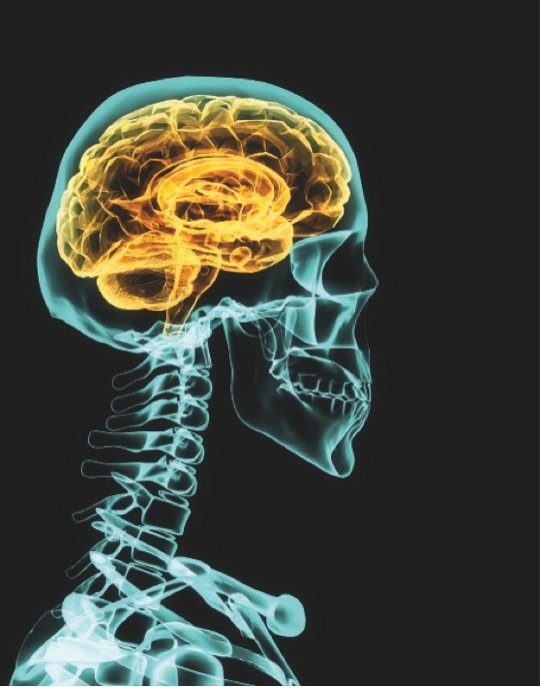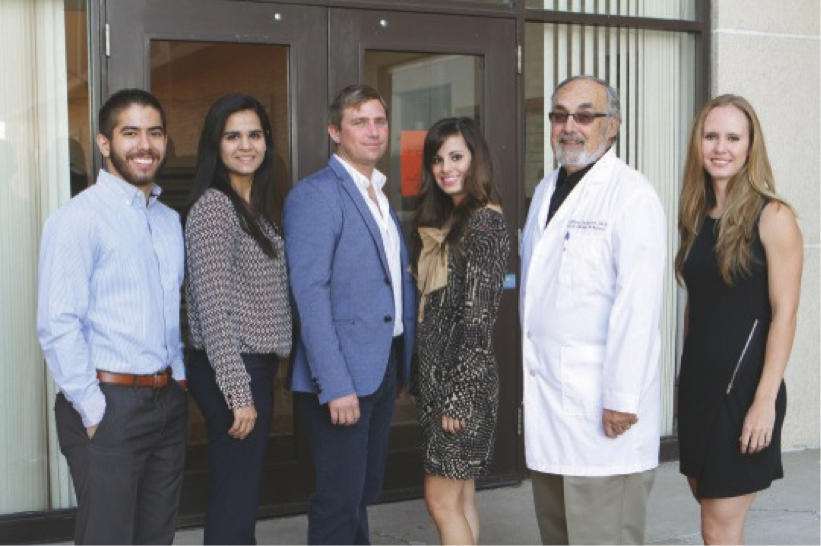Originally published in UTEP Magazine, Winter 2015
By Laura L. Acosta
A helmet-to-helmet hit during a football game in high school resulted in an undiagnosed concussion in Daniel Schobner, a first-year graduate student in the Speech-Language Pathology Program at The University of Texas at El Paso.
“I remember blacking out for a few seconds and then coming back up feeling kind of dizzy, but I continued to play,” recalled Schobner, who was unaware at the time that he had experienced the symptoms of a concussion – a mild traumatic brain injury, or TBI, which is caused by a bump, blow or jolt to the head that affects normal brain function.
In UTEP’s Concussion Management Clinic, graduate student researchers in speech-language pathology and doctoral students in the Interdisciplinary Health Sciences (IHS) doctoral program are using the facility’s resources to make an impact on concussion research.
Under the guidance of Anthony P. Salvatore, Ph.D., the clinic’s director, student researchers like Schobner use data from the baseline concussion test called ImPACT to increase their understanding of traumatic brain injuries in order to treat, prevent and manage concussions in high school and college athletes.
For more than a year, Schobner has been evaluating pre- and post-concussion test results of athletes in the clinic to see if concussed athletes have problems perceiving three-dimensional objects.
“When a concussed athlete, or anyone who’s concussed, goes to the hospital, typically they’re checked through a CT scan, but the scan only shows if structural and intracranial bleeds are ruled out, but not concussion,” Schobner explained. “A concussion … is more of a chemical imbalance in the brain.”
Concussion symptoms such as dizziness, nausea, headache and light-sensitivity range from mild to severe and require immediate attention.
For the past eight years, students in the Concussion Management Clinic have performed baseline neurological assessments of more than 3,000 athletes in contact sports, including UTEP athletes, to compare their neurological function before and after a concussion. ImPACT measures verbal memory, visual memory, reaction time and processing speed.
“The vision of the Concussion Management Clinic was to provide an educational and research opportunity for our graduate students, specifically speech-language pathologists, who can make a difference in the schools where they work by collaborating with coaches and trainers to develop a concussion management program to keep their student-athletes safe and healthy,” said Salvatore, who also is the chair of the Department of Rehabilitation Sciences at UTEP.
Among the clinic’s priorities is to increase awareness of second-impact syndrome. After a concussion, the brain is more sensitive to re-injury. If an athlete returns to play before the brain is properly healed, a second concussion could cause rapid and severe swelling in the brain, which often is followed by catastrophic results.
The factor driving John Pfirman’s research in the clinic is to improve the safety of athletes by reducing their risk of second-impact syndrome.
Pfirman, who is in his second year of the speech-language pathology program, is no stranger to TBI. As a teenager, he suffered concussions after separate skateboarding, BMX cycling and snowboarding accidents.
For more than a year-and-a-half, Pfirman’s research has focused on whether there are any factors, such as not knowing the signs and symptoms of a concussion or pressure to stay in the game, that prevent athletes from reporting concussions.
“The only way we know if athletes have a concussion is if they self-report because there are no biological markers (to look at),” Pfirman said. “You can’t draw blood to find out if they’ve had a concussion. There are a lot of other factors that influence them to play. So we want to rule out different factors because that information enables us to keep them safe whether or not they’ve had a concussion.”
Separate studies also are being done on the effects of concussions on verbal fluency and post-traumatic stress disorder (PTSD) in athletes.
Kylie Marshall, a second year Speech-Language Pathology student, is investigating which symptoms of PTSD and post-concussion syndrome overlap in college and high school athletes. Her research involves data gathered from Salvatore’s previous study on PTSD, which compared soldiers with a history of TBI and athletes with a history of concussion.
Before completing his doctoral studies in the IHS program in 2014, Nicholas G. Murray, Ph.D., an assistant professor and director of concussion research at Georgia Southern University, studied balance control in concussed adults with Salvatore and his dissertation adviser, Rebecca Reed-Jones, Ph.D., a former assistant professor of kinesiology at UTEP.
Doctoral student Mrudula Raparla is studying biomarkers in patients with second-impact syndrome. Raparla and her dissertation adviser Delfina C. Domínguez, Ph.D., professor of clinical laboratory sciences, Murray and Reed-Jones co-authored articles about their research for a special edition of the August 2014 journal, Seminars in Speech and Language.
Titled “Concussion 101 for SLPs,” the special edition featured articles on concussion management, treatment and prevention from UTEP faculty in speech language pathology, pharmacy, clinical laboratory sciences, physical therapy and kinesiology.
“It’s really a team approach across multiple disciplines to properly care for these patients,” said Salvatore, the journal’s guest editor. “The topics that we covered are important in the adequate assessment and treatment in concussed patients.”
In UTEP’s Concussion Management Clinic, graduate student researchers in speech-language pathology, from left, Daniel Schobner, Paulina Mejia, John Pfirman, Kara Greco, clinic director Anthony P. Salvatore, Ph.D., and Kylie Marshall, are researching traumatic brain injuries in order to treat, prevent and manage concussions in high school and college athletes.
